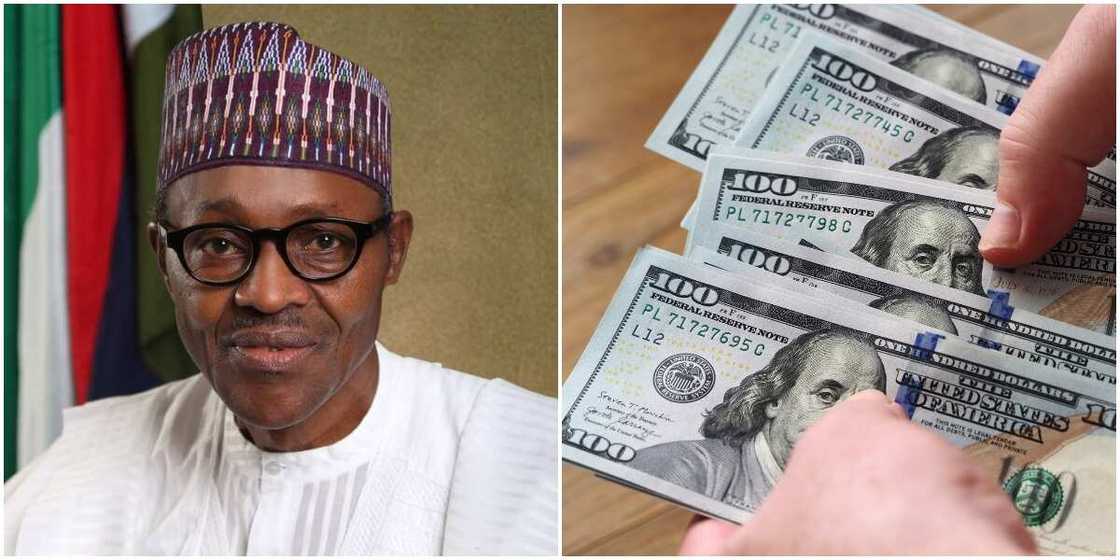Rising Dollar Rate: Four Ways it Affect Every Nigerian as CBN Battles Bureau De Change Operators
- The rising foreign exchange rate is affecting everybody in Nigeria, the jobless, the worker, rich and poor households
- Nigeria's central bank has been making decisions to tackle the strength of the dollar against the naira, but its effect hasn't been profound
- High cost of dollar is affecting every Nigerian in four negative ways, and the policies of the financial regulator is struggling to prevent the consequences
You have probably started reducing your food consumption rate, and stopped buying some items you never thought you could scratch out of your shopping list - for example, Sardine?
How much is it in your area now? it probably cost you N500 to get one Sardine (even though it comes with two tiny fishes), but in some streets of Lagos, the two fishes, with neither head or tail, is sold for N700.
But before you start wondering how the rising dollar rate concerns you and the food items, let's take you through memory lane of recent events.

Source: UGC
One factor affecting cost of Sardine, other food items
Foreign exchange rates in Nigeria has been a major topic for discussion in recent times, as the Central Bank of Nigeria (CBN) continues to struggle to unite the official forex rates with the black market's.
PAY ATTENTION: Subscribe to Digital Talk newsletter to receive must-know business stories and succeed BIG!
Currently, there is about N160 difference between the CBN-recognised Investors & Exporters (I&E) window dollar rate (where dollars is officially traded) and the parallel market.
This difference has its negative consequences on the cost of living in Nigeria and foreign trade activities as domestic and foreign transactions are dollar based - so when dollar rises, cost of food items follows same path.
In order to curb the rise of dollar rate and strengthen naira against the greenback, Godwin Emefiele, CBN governor, has been making several policies, including stopping the sales of forex to Bureau De Change operators, accusing them of aiding financial crime, while also devaluing naira.
He has also clampdown on a forex reference website, abokiFX, blaming the firm of manipulating black market dollar rate, but in all, no real positive effect has been experienced for a longterm, however, Nigerians have continued to bear the brunt in the short and medium term - as listed below.
Four ways forex rise affects you
Reduce your standard of living
The rise in foreign exchange rates has increased cost of living in Nigeria, affecting the purchasing power of Nigerians, and forcing them to reduce their spending rate.
This has reduced the standard of living within the country. While statistics agency, NBS, stated inflation rates has dropped three months in a row, many have stated that it doesn't reflect the realities of Nigerians.
This year, price of rice climbed to N30,000, soaring 300% when compared to N7,500 of 2015, and this is caused by rising dollar rate according to President of Nigerian Rice Farmers Association, Aminu Goronyo.
According to foreign research firm, Numbeo, to experience quality of life in Nigeria, it cost a family N648,694 monthly, without rent, while for an individual, it cost N179,118 - but average minimum wage in the country is N30,000, the price of a bag of rice.
No dollar for some foreign businesses
CBN's policies to strengthen the naira has led to scarcity of dollar and pound in Nigeria, although the apex bank said it has enough forex for "legitimate" transaction needs, but not for all businesses.
This means for ventures not considered legitimate by the financial regulator, or outside these options; essential travel allowances, payment of tuition and medical fees, individuals or company won't have access to forex.
Also, for persons or firms that want to import items like rice, maize, wheat, margarine. palm kernel/palm oil products/vegetable oils, meat and processed meat products, vegetables and processed vegetable products, chicken, eggs, turkey, they will not be given forex by CBN.
Affecting healthy nutrition
The high cost of living in Nigeria has affected the healthy lifestyle of Nigerians, as households can't eat a complete balanced diet due to expensive foodstuffs.
Last year, a unit of egg that cost between N30 to N40 is now sold between N60 to N70 depending on height and weight, while six unit of plantain that cost N500, now goes for N1000.
Also, Power Oil vegetable 75ml, sold for N50 in 2020, now cost N100 in some markets. The sharp rise in cost of food items makes it difficult for vulnerable and poor households to eat three square meals and healthy food.
Affects imported goods
The scarcity of dollar and other foreign exchange goods for importation of foreign goods cause these items to be costly when they eventually find their way into Nigeria.
Most foreign goods brought into Nigeria are shipped with expensive forex obtained in the black market, and in order to make their profit, importers pass the cost of parallel market forex on Nigerians consuming their imported goods.

Read also
Nigeria losses N230.77bn to Twitter ban, P.R expert says country to lose more than cash after lifting ban
This is why the cost of doing business in Nigeria, $221.84, is more expensive in the country compared to South Africa ($12.66), Egypt ($12.73), Ghana ($125.46), Cameroon ($126.33).
Three Common Mistakes Nigerians Make in Savings - Three Ways to Save Profitably In Dollar, Others
In the current state of Nigeria today, with rising cost of food, saving might be the last thing to come to your mind, but then again, to survive, you need a fallback money kept somewhere.
However, not many Nigerians know how to save profitably. The first mistake they make is save their money in a savings account - you probably wondering what's wrong with that?
Well, when you look closely, everything is wrong with it, as it's like you paying banks to keep your money - so rather than save naira in bank vault, you can save it elsewhere or better still, you can save dollar.
Source: Legit.ng






